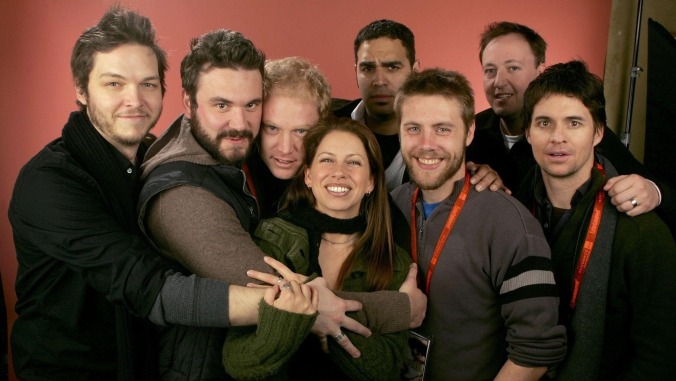How Hellraiser director David Bruckner turned me into a movie villain after a negative review
Back in 2008, David Bruckner and his co-directors reacted to my harsh critique of their debut, The Signal, by writing me into a sequel—as the bad guy

The relationship between filmmakers and critics can be a complicated one. Directors can spend years getting something made, and may become understandably defensive when a critic fires off a review that dismisses, misinterprets, or condemns that project. Conversely, critics consider themselves analysts of form and/or function, and temperature-takers of the merits of a work. When their critique is rebuked it can feel like their role as cultural commentators is being challenged. Of course, each party can learn from the other, but like with any relationship, their dynamic requires mutual respect, humility, and a level of compassion.
Back in 2008, I reviewed The Signal, the debut film by co-directors David Bruckner (Hellraiser), Jacob Gentry (Synchronicity), and Dan Bush (The Vault). I didn’t especially like it, and said as much in my write-up for the website IGN. But over time, I would become friends with Gentry, and professionally cross paths with Bruckner a number of times. One night at a private event—and after a few adult beverages—Gentry confessed that he and his collaborators had read my review, and it sparked what I considered an extremely funny moment of inspiration. When I spoke to Bruckner recently for his exceptional new Hellraiser adaptation, we revisited this moment from earlier in our careers to get the aftermath of my review officially on the record.
The A.V. Club: A few years ago, I met Jacob Gentry. We got to be friends, and he mentioned that a review that I wrote of your film, The Signal, had inspired an element for a potential sequel. I was hoping you would talk with me about that.
David Bruckner: I was really hoping you would bring this up. Because you and I had only sort of acknowledged this once, which I think was at Fantastic Fest in 2018. The Signal was 2008, and we had never released a movie to the public. Jacob Gentry, myself, and Dan Bush were three directors that were part of this triptych movie that we had made—very, very indie. We weren’t used to getting reviews. And Todd, your first watch of The Signal, you did not enjoy it, which is fair. And your criticism was exquisite. And so we began to brainstorm a Signal sequel. And occasionally we would refer to Todd Gilchrist, like, how do we make Todd Gilchrist happy? And this mutated in our writer’s room into a character known as Gill Toddchrist. It was a joke for us. And then he found his way into the script—and he became amazing. And it became very funny to us that he was just fantastic. One tidbit about Gill was that he was a sports fan, and he really liked giving the play-by-play of “Signalized” individuals in the street. So he could talk whoever he was around into what was about to happen, and had an uncanny ability to predict how it would land. And then I found out you and Jacob met later and became pals, and was very happy to hear that there was a conversation that that happened.
 Keep scrolling for more great stories.
Keep scrolling for more great stories.
